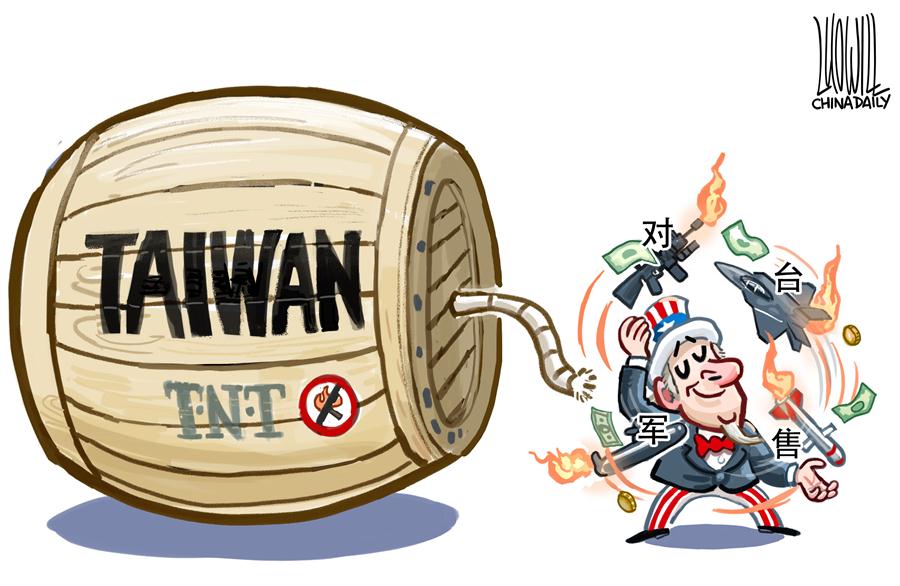The message is clear, US must stop selling arms to Taiwan: China Daily editorial
chinadaily.com.cn | Updated: 2019-07-12 23:47

That Beijing has vowed to sanction US enterprises that have agreed to sell $2.2 billion of arms to Taiwan must have made island leader Tsai Ing-wen, who landed in the US on Friday on her way to four Caribbean states, and her American hosts uneasy.
This is the first time Beijing has decided to take a concrete countermeasure, other than issuing a strong protest, to remind the United States and Taiwan that its patience is fast running out. And this is the first time the US' strategy vis-à-vis Taiwan seems set to be broken, as is the equilibrium among the three sides.
Now that the ball is in the US' court, it is its obligation to warn its enterprises not to participate in arms sales to the island. Not least because compared with the huge market of the Chinese mainland, the island's demand for US weapons pales into insignificance.
The US companies involved in the $2.2 billion deal to sell arms to Taiwan will have to re-weigh their decisions based on potential gains and losses — especially those that have sizable business interests in the mainland market.
The message could not be clearer, China will no longer stand idly by while Washington emboldens the secessionists on the island. The US should honor the past commitments it made in the three joint communiqués.
The fact that the US is selling arms to Taiwan unchecked for almost four decades and thus seriously violating international relations and laws, and breaching the one-China principle enshrined in the three Sino-US joint communiqués is more than enough reason for Beijing to take suitable countermeasures. It would be a travesty of statecraft if the companies threatening the country's sovereignty and security are allowed to go scot-free.
It took years for Beijing and Washington to ink the last of the three communiqués on Aug 17, 1982, as its focus is on the island and Beijing didn't want the hard-won normalization of Sino-US diplomatic ties to be swayed by the Taiwan question.
In the document, Washington states that "it does not seek to carry out a long-term policy of arms sales to Taiwan, that its arms sales to Taiwan will not exceed, either in qualitative or in quantitative terms, the level of those supplied in recent years since the establishment of diplomatic relations" with Beijing.
The US has time and again violated this promise — four times since the current US administration took office.
Perhaps the strenuous cross-Straits relations have prompted Washington to shift its strategic focus from protecting the island's safety to playing the "Taiwan card" to balance its overall relations with Beijing.
Beijing's move was long overdue, given that the nation's sovereignty and security are at stake.
Hopefully, the vow to impose sanctions on US enterprises will drive home the message that China will no longer brook the US' actions which threaten its national security. And that Beijing now has the capability to defend its core interests by sanctioning US enterprises should make Washington taste some of its own bitter medicine.
The sanctions can be seen as a response to the latest US arms sales to Taiwan and Tsai's two-way, four-night stopover in the US, or it can be seen as the beginning of a series of countermeasures to force Taipei and Washington to adapt to the changing dynamics in the new era.
And as a stern warning to the secessionist forces on the island, including Tsai, so they don't spoil the ship for a half penny worth of tar by currying favors with US politicians.
























